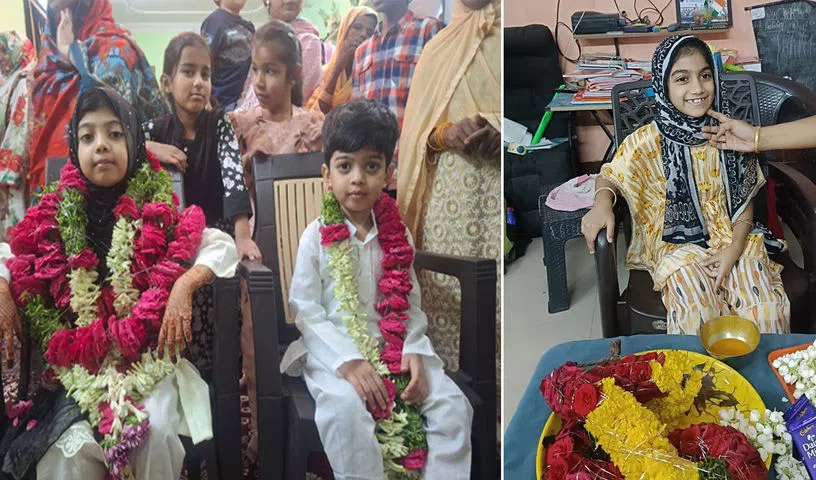
Ramzan is a time when young children are introduced to fasting, often encouraged to keep at least one or two fasts during the holy month. Special occasions like Lailatul Qadr are chosen for a child’s first fast
Hyderabad: As evening approaches, the entire family gathers around the dastarkhwan, eagerly waiting for iftar. Among them is young Khadija-tul-Kubra, who is usually occupied playing with her little brother, Taha.
However, today is special – she is observing her first fast and sits patiently with her family, anticipating the moment to break it. The clock reads 6:30 p.m. An array of delicious food is spread before her: fresh pineapple slices, juicy watermelon, succulent dates, refreshing mango juice, grapes and mouthwatering dishes like haleem and dahi-wadas.
Yet, she refrains from touching anything, as three more minutes remain before the siren signals the time to break the fast.
Ramzan is a time when young children are introduced to fasting, often encouraged to keep at least one or two fasts during the holy month. Special occasions like Lailatul Qadr are chosen for a child’s first fast.
The occasion is celebrated joyfully by the family. Known as ‘Roza Rakhai,’ this milestone is marked with festivity. The fasting child is showered with attention, adorned with garlands, and gifted new clothes and presents by relatives to appreciate and encourage their effort.
Did she find any problem during fasting? “No, it was fine, I just felt a little thirsty,” she remarked after breaking the fast. Her cousins, Aaliya Nausheen and Abdul Khadir, echo similar feelings.
While fasting is not obligatory for children in Islam, families often motivate them to observe it to familiarize them with the practice. Their favorite meals are prepared, and their small requests are happily fulfilled. To make the experience enjoyable, other children from the family are invited to share in the excitement. Some children start with shorter fasts, gradually increasing their duration until they can observe a full-day fast.
Fasting teaches children gratitude, helping them appreciate the blessings they have. Experiencing hunger firsthand allows them to empathize with those less fortunate.
“Fasting is an act of submission to God’s commands,” Khadija recalls from her parents’ teachings. Though waking up for the pre-dawn meal, ‘sahr,’ can be challenging, children excitedly rise to partake in the early morning feast. Loving parents ensure they eat well to sustain themselves throughout the day.
One of the five pillars of Islam, fasting holds both spiritual and physical benefits. It instills self-discipline and fosters a deeper connection with faith. For those seeking self-control and mindfulness, fasting serves as a powerful practice that nurtures both the body and soul.







